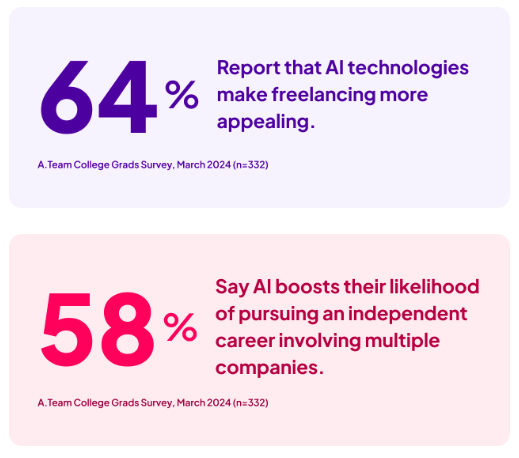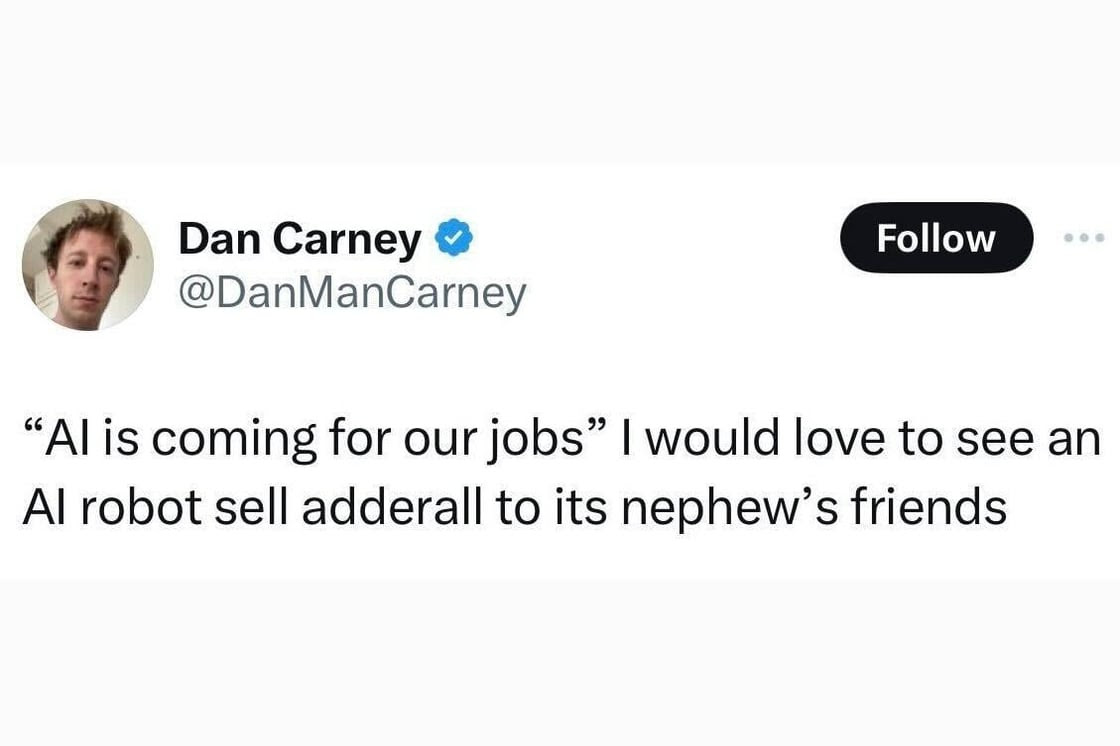
THE BIG IDEA
The end of SEO as we know it
Some big news came out of Google I/O last week: namely, AI-generated answers are coming soon to your search results if they aren’t there already.
Will a chatbot-style interface replace search as we know it? If the answer to your question is right there at the top, will anyone get any search traffic to their websites?
As John Herrman wrote in New York Magazine, “It’s a half-step into a future in which the internet, when given a query, doesn’t provide links and clues — it simply answers.”
A writeup in Casey Newton's blog, Platformer, suggests this development will be nice for users and not so nice for businesses, publishers, and creators. “As the first day of I/O wound down, it was hard to escape the feeling that the web as we know it is entering a kind of managed decline," Newton wrote.
Writer's May Habib said, "Google has burned the boats."
This is a classic Google strategy, though. When they perceive a threat to a piece of their business (hint: ChatGPT disrupting search), they invest heavily in a reaction to that threat. Remember the underwhelming debut of Google+ a decade ago? That was a belated reaction to the success of Facebook.
“This time,” as Eric Solomon, A.Team CxO and former director at Google, put it, “it's the core of the business that's being attacked. Google Search as the portal to the ‘web’ is slipping away fast.”
One hitch in this plan: If publishers and creators take a revenue hit from declining SEO traffic, there’s less incentive to put out good, original content. That might mean there’s less human-made data for the big models to train on.
This is how the AI ouroboros starts eating its own tail.
Click Here to Share This Newsletter
CHART OF THE WEEK
AI is making freelancing very appealing to new grads

Gen Z’s primary anxieties revolve not around the existence of AI, but rather around their ability to excel with advanced AI skills and how AI might shape the future of their career path.
We surveyed 332 Gen Z students, aged 18-27, across the United States who are graduating this year or who completed their studies in December 2023.
Seventy-two percent said Gen AI saves them up to 10 hours a week, which gives them ample time for a side hustle. Sixty-four percent reported that AI technologies make freelancing more attractive, and 58% said that AI boosts their likelihood of pursuing an independent career involving multiple companies.
One student remarked, “Generative AI will allow me to explore new, innovative side hustles and full-time careers for more flexibility in the workplace.”
EXPERT BUILDER
Fintech leaders care about AI, but not as much as you’d think
We caught up with Christine Chen—an A.Team fintech guild leader who has built solutions for Goldman Sachs, JP Morgan, Wells Fargo, Deutsche Bank, and Barclays—to talk about why generative AI adoption is so hard in fintech and banking.
Who internally represents the biggest barrier to AI adoption within a big financial services company?
I can identify three buckets of people. In one are the AI advocates. They care about innovation. They want to build these models ASAP. There's a second group of people who are more conservative. They're not against it, but they want to see another industry player validate this before they make additional investment. Third, are the people who are completely old school. They don't trust AI. They feel that AI could be risky. They feel that they could be losing their jobs.
So what’s the trick to moving forward with a generative AI initiative?
Here is the thing: Yes, AI is going to be important, but it's not the only factor in a successful business model. I don't think that consultants should just go and say, “Let's do AI.” And that's all we do. We need to create a strategy and execution plan that makes sense for your organization. So you can out-compete your competitors. That's the mentality. Yes, AI could be part of the portfolio. But it's not the only element. It's about the ability to understand your customer, the ability to understand the industry's landscape and be able to come up with the most cost-effective strategy.
That's such a refreshing thing to hear. Sometimes it feels like people are trying to hit every nail with the AI hammer. Do you have an example use case?
Let’s look at a use case in wealth management. Obviously, there are robo-advisors. But when you service high net worth clients, they care about AI, but not as much as you think. Their rationale is, Why should I pay so much money for a robot to do the work? I want to be able to speak to a human being who understands my needs and wants, who is compassionate, who has empathy, and is able to create a plan.
Within wealth management, there's a huge component of psychology. When you're transferring wealth from one generation to the other, it's about interpersonal conflicts—the relationship between the father and the son. Understanding that cannot be replaced by AI, at least in the foreseeable future.
WATERCOOLER
Sam actin’ skeazy
Not a great week for Sam Altman. First the OpenAI team in charge of safeguarding humanity imploded. Jan Leike, a key researcher on the superalignment team resigned, posting on X that “safety culture and processes have taken a backseat to shiny products.”
Ilya Sutskever also left but that’s not a huge surprise since he tried to oust Altman last year and apparently hasn’t been seen around the office for the past six months. As Vox reported, at least five more of the company’s most safety-conscious employees have either quit or been pushed out since then. Seems like a good time to ask about how concerned with safety OpenAI really is.
But then the ScarJo scandal dropped.
Altman tried for a long time to get Scarlett Johansson to be the voice for OpenAI’s new voice assistant. Her is his favorite movie, apparently. But she said no. So when the feature was enabled for many users last week and the “Sky” option sounded exactly the same as Johansson, ScarJo clapped back.
“When I heard the released demo, I was shocked, angered and in disbelief that Mr. Altman would pursue a voice that sounded so eerily similar to mine that my closest friends and news outlets could not tell the difference,” Johansson said.
OpenAI claimed it was a “coincidence.” Even though Altman posted one word, “her,” on X that same week!
OpenAI took down the Sky option, sure. But it brings to mind the same issues that the OpenAI board gave for firing Altman in November: he was “not consistently candid in his communications.”
That’s got the ring of truth to it.
EVENTS
Gen AI Salon: The Future of Finance
Join industry leaders on May 29th for an invite-only Generative AI Salon exploring real-world use cases where AI is successfully transforming finance. Hear from experts at Blackstone, Bad Bitch Empire, Guggenheim Partners, Tala, Fintech is Femme, and Diadem Capital on:
- AI infrastructure and applications
- Breaking into the AI space
- Using AI for revenue generation
- Ethical data governance
- AI-driven financial inclusion
This is a can't-miss event for fintech founders, VCs, researchers, and decision-makers to discuss innovating responsibly with AI in this highly regulated industry.
MEME





.jpeg)





.jpg)






















.svg)